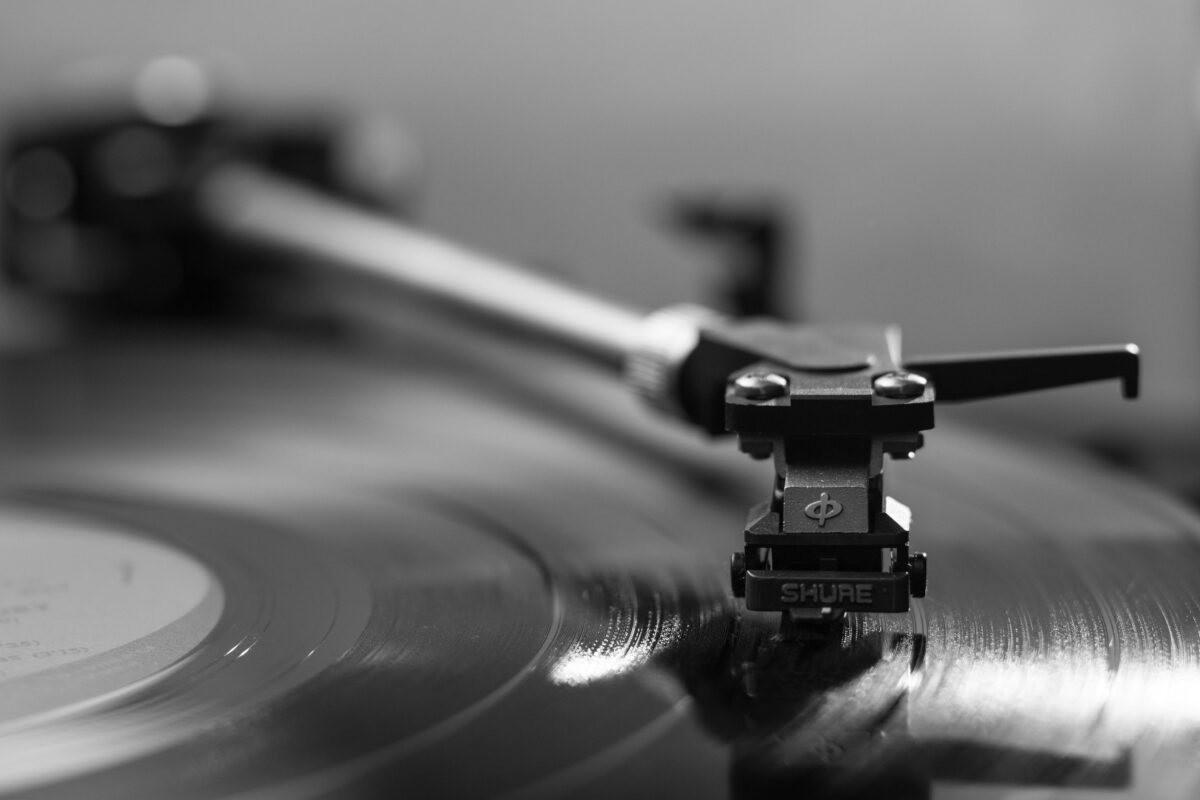
Ron Sutherland says he engineered his new stop-of-the-line phonostage, The Hubble (which he calls, not entirely without justification, a “phono preamplification instrument”), by starting from a blank sheet of paper on which he listed only “must have” elements. Everything that wasn’t absolutely necessary—that would clutter up or needlessly complicate the signal path—was eliminated. This weaning-down process left him with what he considered to be five essentials: 1) a power source that would not contaminate the signal with noise and that would be strong enough to handle the shifting current draw of any kind of musical signal; 2) stereo separation sufficient to fully resolve the space and dimensionality of any musical signal; 3) adjustable gain/load settings that do not degrade the musical signal by sending through switches; 4) a physical circuit platform that does not introduce noise into the musical signal; 5) the highest-quality parts to fully preserve the subtleties of the musical signal.
When I review The Hubble in TAS, I will detail how he set about accomplishing each of these goals. But for the time being, I want to discuss one: stereo separation.
Sutherland claims that to preserve the differences in left/right channel information that are critical to the reproduction of space and dimensionality, each channel must be fully isolated from the other in a so-called “dual-mono” configuration. But, as he says, some circuits are more dual-mono than others. The idea is to treat each channel in exactly the same way—to send each down identical but independent signal paths. To achieve this goal, The Hubble literally houses two identical mono preamps, each completely contained on its own separate but identical circuit board, each with its own energy storage bank of capacitors (19,200mF per bank). All that the circuit boards share—and they share this in identical ways—is the power-control circuit and the 16 D-cell batteries that power each storage bank of capacitors.
I’m not yet ready to comment on The Hubble in full. I’ve only begun to listen. But I can say this: Without question, The Hubble is preserving stereo separation to an extent unparalleled in my previous experience of phonostages, including the previous champ at this trick, the Zanden. Not only are instruments and choirs of instrument separated by greater width at the left/right sides of the stage; they are also separated by greater depth front-to-back and greater height top/bottom. The result on something like the justly famous Proprius choral/organ/orchestral recording of Christmas music “Canatate Domino” is remarkable: The individual vocal choirs are not just spread across the stage well beyond speaker boundaries; they are also separated from one another with utter lucidity, set off by cushions of air and space and ambience that make them sound truly three-dimensional. The Hubble is simultaneously very high in resolution, preserving individual voices within each choir without smearing. You can hear this same effect on something like the strings on “Street in the City” from the old Pete Townshend/Ronnie Lane chestnut “Rough Mix” (which is anything but roughly mixed); the preservation of individual violins in the soaring orchestral crescendo right before that spine-tinglingly “Ah” are kind of ah-stonishing.

By Jonathan Valin
I’ve been a creative writer for most of life. Throughout the 80s and 90s, I wrote eleven novels and many stories—some of which were nominated for (and won) prizes, one of which was made into a not-very-good movie by Paramount, and all of which are still available hardbound and via download on Amazon. At the same time I taught creative writing at a couple of universities and worked brief stints in Hollywood. It looked as if teaching and writing more novels, stories, reviews, and scripts was going to be my life. Then HP called me up out of the blue, and everything changed. I’ve told this story several times, but it’s worth repeating because the second half of my life hinged on it. I’d been an audiophile since I was in my mid-teens, and did all the things a young audiophile did back then, buying what I could afford (mainly on the used market), hanging with audiophile friends almost exclusively, and poring over J. Gordon Holt’s Stereophile and Harry Pearson’s Absolute Sound. Come the early 90s, I took a year and a half off from writing my next novel and, music lover that I was, researched and wrote a book (now out of print) about my favorite classical records on the RCA label. Somehow Harry found out about that book (The RCA Bible), got my phone number (which was unlisted, so to this day I don’t know how he unearthed it), and called. Since I’d been reading him since I was a kid, I was shocked. “I feel like I’m talking to God,” I told him. “No,” said he, in that deep rumbling voice of his, “God is talking to you.” I laughed, of course. But in a way it worked out to be true, since from almost that moment forward I’ve devoted my life to writing about audio and music—first for Harry at TAS, then for Fi (the magazine I founded alongside Wayne Garcia), and in the new millennium at TAS again, when HP hired me back after Fi folded. It’s been an odd and, for the most part, serendipitous career, in which things have simply come my way, like Harry’s phone call, without me planning for them. For better and worse I’ve just gone with them on instinct and my talent to spin words, which is as close to being musical as I come.
More articles from this editor





















